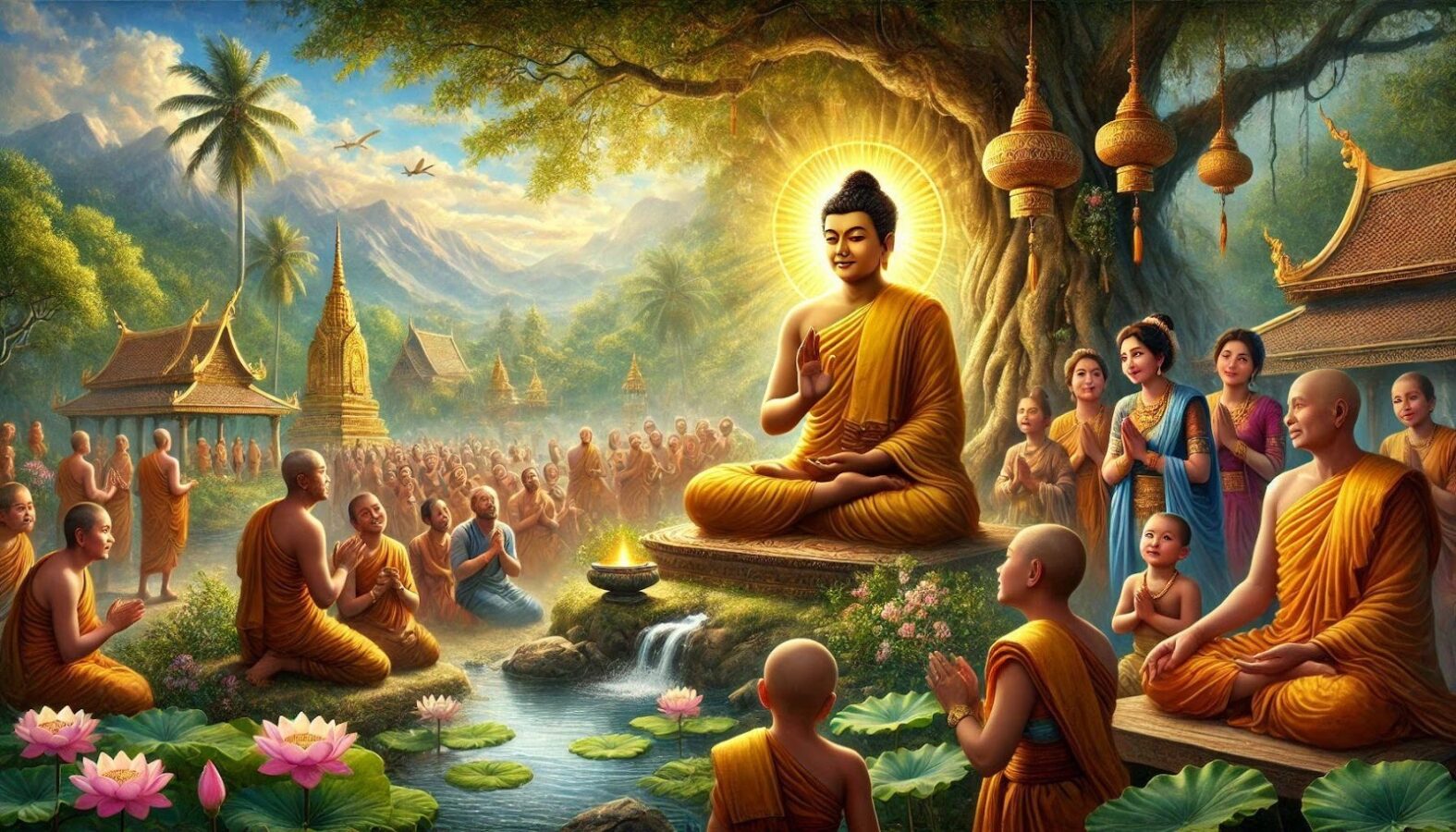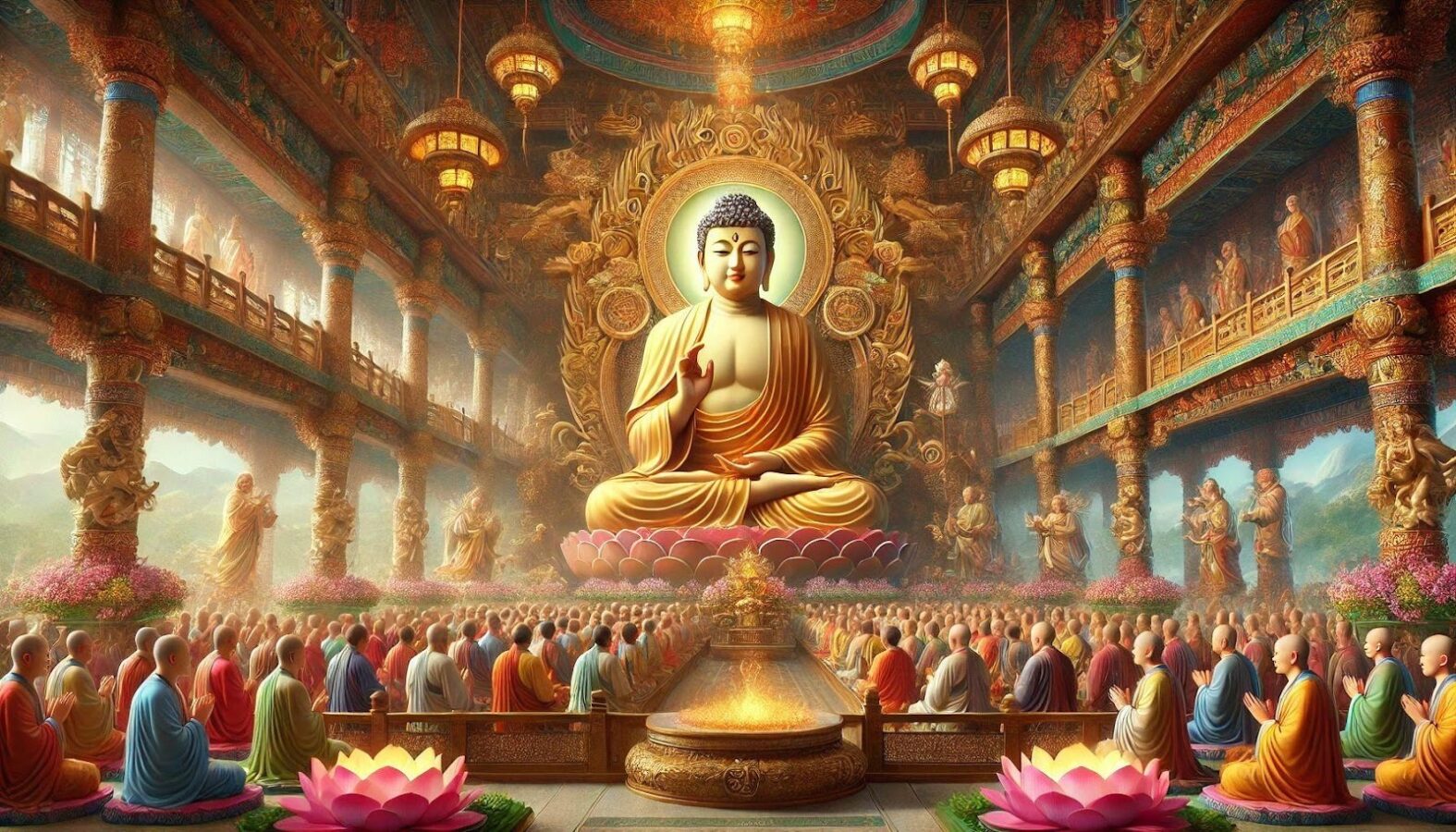
Date: 03/08/2025 03/09/2025
Location: Star Lake Meditation Center
Teacher: Shilin Long
Dharma Talk
Venerable Upāli
Before ordaining as a monk, Venerable Upāli was a barber who was meticulous and diligent, specializing in haircuts for the princes of the Śākya clan. One year, when the Buddha returned to his hometown of Kapilavastu, the highly skilled Upāli was naturally chosen to shave the Buddha’s hair. For Upāli, this was a great test! Thinking about facing the greatly revered enlightened one, and then recalling his own status as a Śūdra (the lowest caste in India’s four-caste system, equivalent to a slave), Upāli could not help but feel nervous.
On the day he shaved the Buddha’s head, Upāli’s mother accompanied him. The Buddha’s compassion relieved Upāli’s anxiety, making him feel less nervous. While Upāli was carefully shaving the Buddha’s head, his mother, standing behind him, asked the Buddha, “How is Upāli’s skill?”
“His skill is very good, but his posture is too hunched,” the Buddha replied. Upon hearing the Buddha’s correction, Upāli focused his mind, adjusted his posture, and at that moment, entered the first jhāna (meditative absorption).
After a while, his mother asked again, “How about now?” The Buddha said, “Now his posture is too upright.” Upon hearing this, Upāli adjusted his posture again and entered the second jhāna.
“How about now?” his mother continued to ask. “His inhalation is slightly too heavy,” the Buddha replied. Upāli immediately focused on his breathing and entered the third jhāna.
His mother asked the Buddha once more, and this time, the Buddha said, “His exhalation is slightly too heavy.” At that moment, Upāli let go of even the thought of breathing and entered the fourth jhāna.
At this point, the Buddha turned to the monks beside him and said, “Quickly take the razor from his hand! Upāli has entered the fourth jhāna. Support him well so that he does not collapse onto the ground.”
Because Upāli was wholeheartedly focused and reverent, the moment he heard the Buddha’s teaching, he attained the fourth jhāna.
Later, when the Buddha returned to Kapilavastu to teach the Dharma, the young Śākya princes were overjoyed upon hearing the supreme truth. They developed renunciation and were willing to leave the household life to follow the Buddha. The princes asked Upāli to shave their heads and left all their precious wealth and treasures to him. However, Upāli did not feel joy over receiving wealth. He thought, “Even the princes can renounce their luxurious and noble lives to become monks, so what is there that I cannot let go of?” Thus, he too decided to request ordination from the Buddha. Yet, he still worried about his caste status…
The Buddha, however, did not reject Upāli due to his low-caste background. Instead, he allowed the princes to pay respects to Upāli, who had ordained before them. Seeing Upāli as a monk, the princes were delighted and were able to overcome their pride by bowing respectfully to him. This act of equality and harmony was extraordinary in ancient India, where the caste system was rigidly enforced.
After Upāli ordained, he strictly upheld the monastic precepts, maintaining perfect purity without any transgressions. Among the Buddha’s disciples, he was honored as the foremost in Vinaya (disciplinary precepts) and was highly respected. Many monks with questions regarding the precepts frequently sought guidance from Upāli.
One time, a monk became ill and had to consume alcohol as medicine, but he refused to drink it, choosing rather to die than break the precept. When Upāli heard about this, he went to consult the Buddha. The Buddha said, “If alcohol is required as medicine for treatment, an exception may be made.”
Following the Buddha’s instructions, Upāli brought alcohol to the sick monk and taught him the Dharma. Not only did the monk recover physically, but upon hearing Upāli’s teachings, he immediately attained Arahantship (the fourth and highest stage of sainthood).
Upon learning of this, the Buddha praised Upāli as a “true Vinaya master”, saying that he not only upheld the precepts but also understood the flexibility and applications of Vinaya.
After the Buddha entered Parinirvāṇa, Venerable Mahākāśyapa gathered five hundred Arahants to compile the Buddha’s teachings. Being foremost in Vinaya, Venerable Upāli was unanimously appointed as the leading reciter of the Vinaya (monastic discipline).
He recited the entire Vinaya Piṭaka with detailed explanations of the reasons for each rule, the people, events, times, and places related to the Buddha’s establishment of the precepts.
He recited the Vinaya a total of eighty times before the compilation was completed, which became known as the Eighty-Recitation Vinaya (Śītavanavāsin Vinaya).

